Research Area
Code Developments
We are developing and upgrading STRAUM (SN Transport for Radiation Analysis with Unstructured Meshes) code for analyzing radiation transport for complicated geometries. Also, we are developing BESNA (Bateman Equation Solver for Nuclear Application) for fuel depletion analysis and generation of radiation source terms.
Numerical solver of multi-group neutral particle (neutron/gamma) transport equation with tetrahedral meshes for complicated geometrical problems.
Use of CAD-based tetrahedral mesh models.
Development of acceleration methods to reduce computing time: Diffusion Synthetic Acceleration (DSA), Krylov subspace methods (e.g., BiCGSTAB, GMRES)
Theoretical analysis of the convergence of the acceleration methods with Fourier analysis.
Parallel computing programming
Generation of adjoint flux
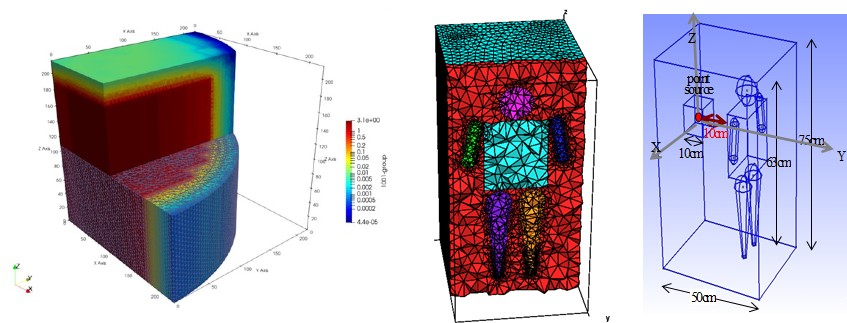
We are developing a computer code (MATXST) for multi-group cross section generation for neutron and gamma coupled transport calculation.
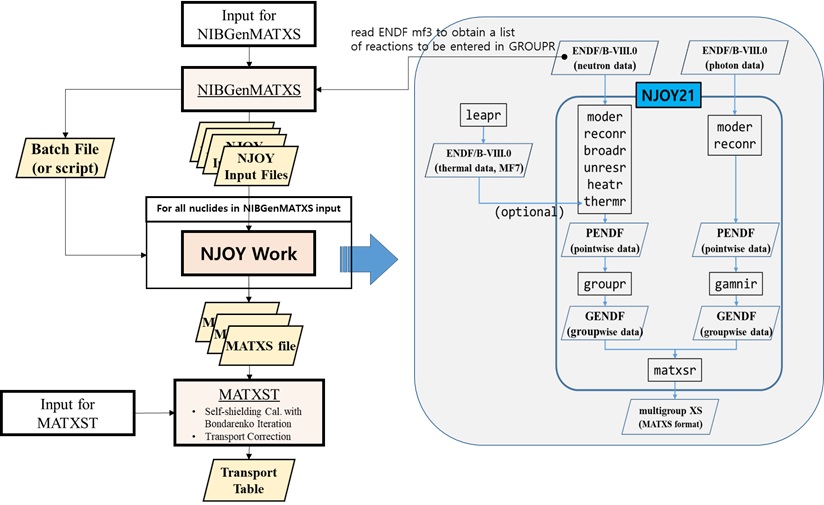
Our goal is to develop an integrated computer code system for radiation transport and activation analysis with combination of STRAUM, MATXST, and BESNA.
Advanced SFR Core Designs
We are performing projects on “new safe Sodium cooled Fast Reactor (SFR) having high burning rate of LWR spent fuel TRU”. The advanced fast reactor cores can incinerate high radiotoxic nuclides contained in PWR spent fuels with recycling. They have the following features:
Effective Use of Thorium Blankets for Burner Core
Combination of Uranium-Free and Uranium=based Fuels
High TRU Burning Rate of Support Ratios Larger than 2.0
Low Sodium Void Worth
Self-Controllability
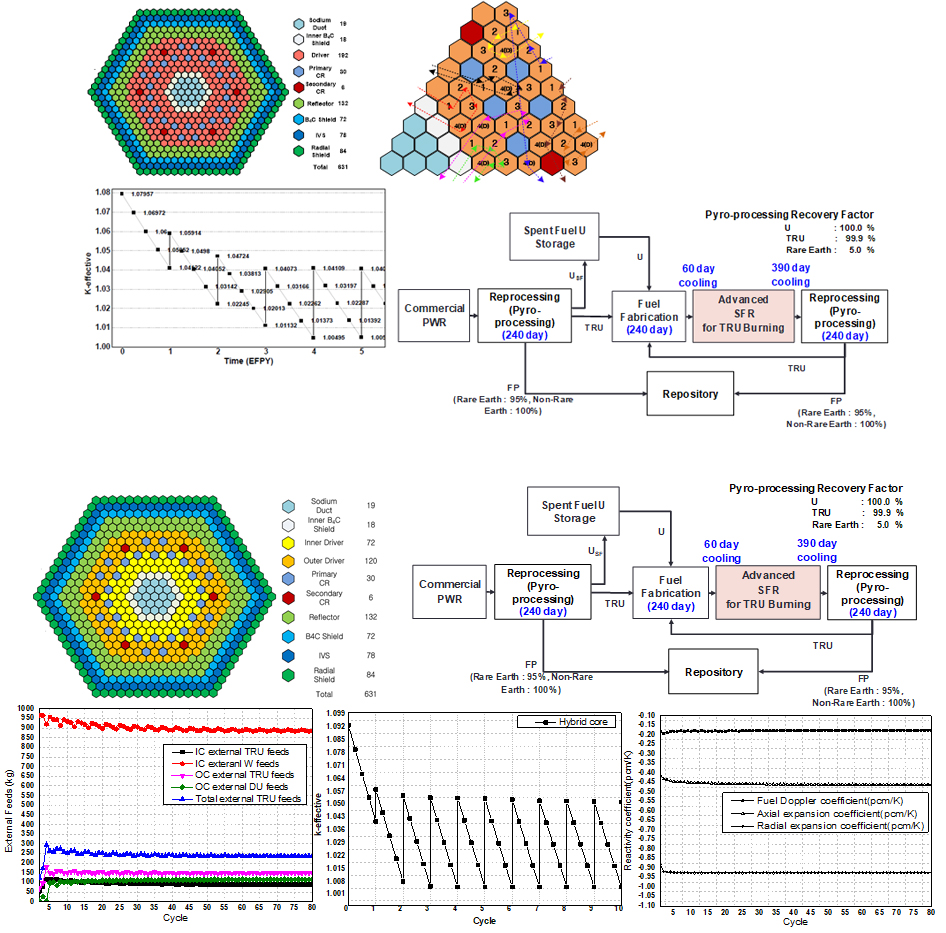
Ultra-Long-Life Fast Reactors
Ultra-Long-Life Small-Safe Fast Reactors are developed for operation of ~50 Years without refueling. They can provide electricity over a long period with systainable and safe way.
Axial Blanket-Driver-Blanket (ABDB) Burnup Strategy with Thorium Blanket
TRU burning and retention over ultra-long-life
Use of heterogeneous fuel assemblies with driver and blanket fuels allowing power shift within fuel assemblies
Partial recycling concept for multi-recycling in Ultra-Long-Life Core
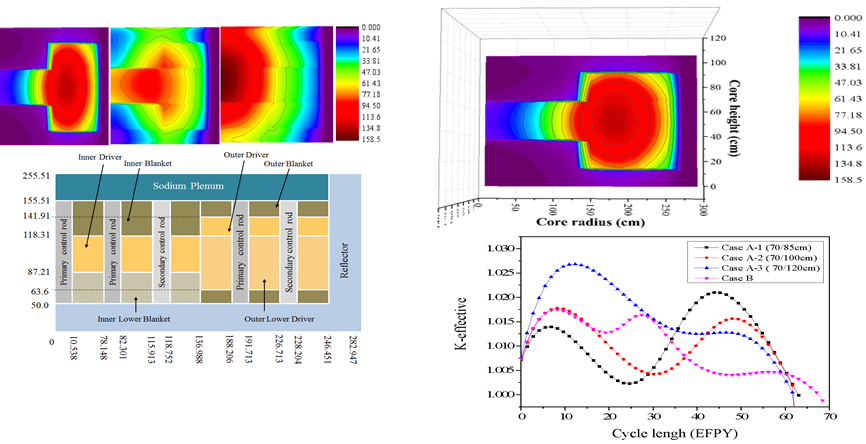
PWR-based SMRs : Boron-Free Long-Cycle SMR
We have designed an advanced PWR-based SMR (Small Modular Reactor) core having Boron-Free operation.
New non-fuel BP rods containing BISO BP particles (B4C kernel) are emplyed to reduce excess reactivity.
They do not only give low excess reactivity but also flat variation of reactivity.
This core can be operated for 3.8 EFPY (Effective Full Power Years) and it has super-safety features with self-stabilization under rod ejection accident.
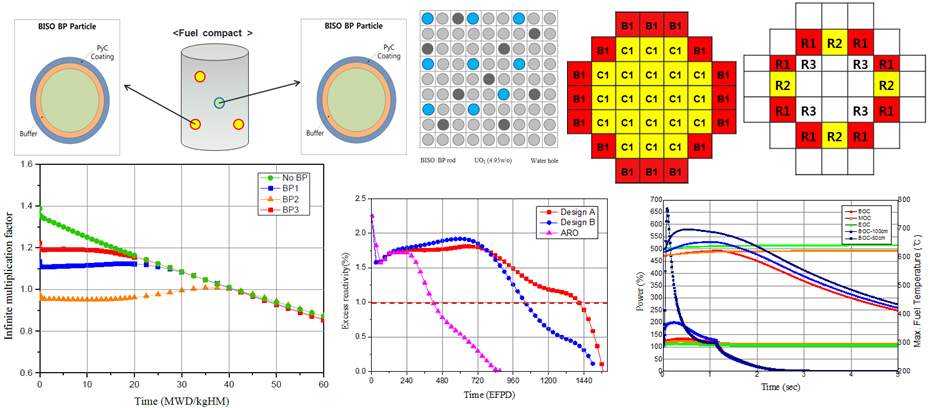
PWR-based SMRs : TRU Multi-Recycling
We suggested new TRU recycling option using PWR fuel assemblies with MOX (TRU) and FCM fuel rods to consume TRU contents in PWR spent fuels. TRUs from MOX fuels are recycled but TRUs from FCM fuels are not recycled (FCM fuels have good FP retension capability). This concept has considerable net TRU consumption rate.
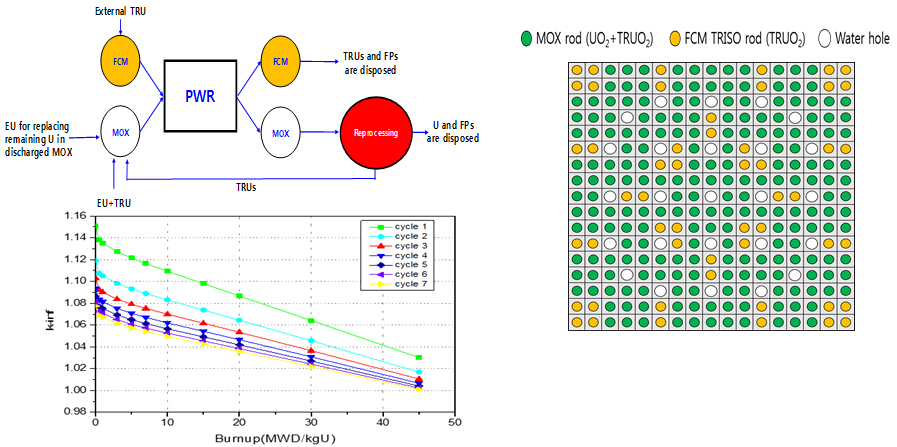
Spent Fuel Mangement
We are developing a code (called ‘AMORES’) for automatically estimating spent fuel characteristics and source-terms for a huge amount of spent fuels.
Automatic preparation of ORIGEN-S inputs and executions for a huge number of spent fuels.
Automatic estimation of source-terms and characteristics for a huge number of spent fuels with spent fuel database.
Projection of future spent fuel generation and accumulation
Automatic analysis of radiation shielding and criticality safety analysis for casks.
Criticality safety analysis for spent fuel storage and transportation facilities is actively studied with burnup credit.
Consideration of the realistic axial burnup distribution with core analysis
Uncertainty evaluation of criticality analysis
Boron credit application for sepent fuel storage pools
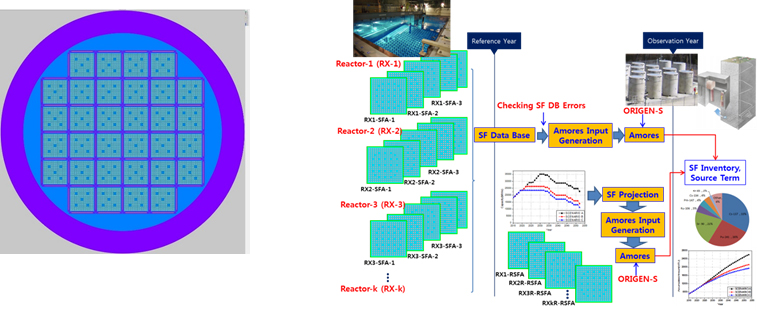



 Tel : 02) 2220-2365
Tel : 02) 2220-2365